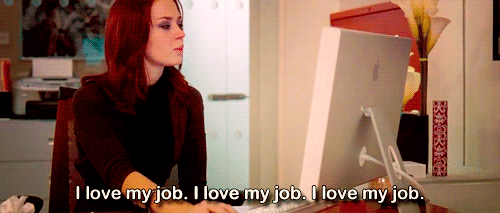Your annual OBGYN appointment is coming up and by this point in your collegiette career you probably feel like a pro. You’ve driven to the office a handful of times, chatted with the receptionist, and waited patiently while flipping through the latest issue of Glamour. When your name is called, you confidently walk into the examination room like you have done each year before.
For such a routine appointment, it is surprising how many college-age women aren’t familiar with the dos and don’ts of visiting the gynecologist. Not only are there tips and tricks when it comes to preparing for the appointment, but there are certain things to know while you are meeting with your gynecologist. It is always better to be well informed to the point of over preparedness than left in the dark, so here are some dos and don’ts to consider the next time you see your gyno.
DO find a gynecologist who you are comfortable with.
![]()
This is probably the most important tip when it comes to your gynecology appointment. If you aren’t comfortable talking with your gynecologist, then it is time to do some research and find someone who meshes better with your personality. You want to find a doctor who you will be comfortable talking to because, let’s face it, OBGYN appointments can get pretty awkward. If you are more comfortable with a female, then find a female gyno. If you would feel more at ease talking to someone closer in age to you, then look for a younger doctor. It is all about making the appointment as comfortable as possible because the more comfortable you are, the more likely you will be to open up to your OBGYN!
Jessica, a junior at Ohio University, is a big advocate of finding a gyno that you can talk to without feeling judged. She shares, “The doctor I see is always open to any of my questions and always tells me what she’s about to do and why, which I really appreciate. It makes an uncomfortable process a lot less nerve racking.”
Along the same lines, Kathryn, a senior at University of Tennessee-Knoxville, shares, “I’ve never felt judged by my OBGYN, only understood. If you aren’t comfortable with yours, find one that you can be honest and open with. You should be able to ask questions and be honest. That’s so important for your health as a woman!”
So where should you look if you are on the market for a new gynecologist? First of all, ask around. Most collegiettes have a favorite OBGYN whose name they will love to pass around. If word of mouth isn’t unveiling any fabulous doctors that fulfill your criteria, then check out Healthgrades. All you have to do is enter the specialty (Obstetrician and Gynecologist) and your zip code. The result is a list of doctors with credentials, experience, contact information and patient reviews.
DO keep track of your monthly cycle.
![]()
Life can get pretty busy and doing something as simple as keeping track of your period might slip through the cracks. However, it can be extremely beneficial to monitor when your cycle arrives each month, how long it lasts, and anything out-of-the-ordinary that occurs. Dr. Sara Gottfried, a Harvard-trained gynecologist, explains, “It’s important to get in this habit so that you know if your period is regular. The timing tells you a lot about whether your hormones are in balance or not.”
Technology has made tracking your cycle that much easier. Using iCal is one effective method, but there are also a host of iPhone and smartphone apps. Our personal favorite? Period Tracker Deluxe. It not only has a feminine and girly interface, but it allows you to track your symptoms, mood, weight, and other potentially important factors. The deluxe version is $1.99, but there is a free lite version available for any frugal collegiette trying to save her hard-earned money.
If you aren’t super techy, you can always keep track of your cycle the old school way like Jessica, a sophomore at Hobart and William Smith College. Jessica shares, “I have a mini calendar that I keep in my sock drawer so every month when the time comes I mark down the day I got my period.” This guarantees privacy whereas there is always the possibility of a little sibling playing with your iPhone and maybe seeing something you don’t want them to see.
DO come up with questions beforehand.
Throughout the year, jot down any questions that pop into your head for your gynecologist. Keep this running list saved on your phone, on your laptop, or even on paper. Even if a question no longer applies when the time of your appointment rolls around, ask it anyways! It is always better to be well informed than to be left in the dark.
Some great things to ask questions about are:
- If you ever have pain during sex
- Any irregularities with your period
- Side effects from your birth control pill
- STI and STD testing
During the appointment, don’t be shy! If something sounds confusing, speak up! All doctors appreciate a curious patient as it shows that you are taking your health seriously.
DO know your medical history.
![medical history]()
This is important for any kind of doctor’s appointment, but when it comes to seeing a gynecologist, make sure you know your medical history as well as your family’s medical history. If breast cancer or polycystic ovarian syndrome (POS) runs in the family, let the doctor know.
If you don’t know your medical history, then it is time to sit down and have a talk with your mom. As a collegiette, you are making the transition to the real world where you will be responsible for your own health. This means mom won’t be with you at your appointments and she may not be accessible when you are scrambling last minute to figure out any medical problems that run in the family. So sit down and openly ask her if anything runs in the family that you should know about. This medical history will only help you and your doctors to better assess your body and overall health.
DO relax.
OBGYN appointments can be stressful. Doctor’s offices already have a certain stigma, as they are commonly associated with anxiety, worry, and overall uneasiness. The key to avoiding all of these unwanted feelings is to relax. Take deep breaths while sitting in the waiting room, distract yourself by reading your favorite magazine, and get your head in the right place. Once you are called into the examination room, remember that the appointment will be over before you know it. Another important reason to relax is that all examinations – pap smear, pelvic exam, breast exam, etc. – will be quick, easy and more effective if you are calm and relaxed.
Katie, a junior at Syracuse University, admits that she gets a little nervous during her appointments. She advises, “Try focusing on breathing and thinking of something funny instead of what may be going on in the examination room.”
DO get a pap smear once you turn 21.
![]()
The encouraged standard by licensed gynecologists is to get a pap smear as soon as you turn 21. Why is this so important? Dr. Gottfried explains, “You want to make sure you don’t have something sexually transmitted, including Human Papilloma Virus. The vaccine only protects you from some of the strains, not all.”
If you’ve never had a pap smear before, no worries! It isn’t as scary as everyone makes it out to be and it will only help you in the long run. As Dr. Gottfried emphasizes, “A pap should never be painful! Tell the examiner to stop if it is painful and start looking for another clinician immediately!”
DO ask to get a urine test for STDs as soon as you have sex.
Most gynecologists will test you for the most common STIs and STDs without you having to specifically ask. However, it never hurts to gently remind your doctor that you definitely would like a urine test. Why do you need a urine test in addition to a pap test? Dr. Gottfried explains, “Some STDs, like Chlamydia are ‘silent,’ meaning they have no symptoms and you don’t need a pap test for them. This is one reason why the urine test is really important.”
DO follow up on your test results one week after the appointment if you have not heard back.
It is always best to be proactive, so if you haven’t heard back after a week, then it’s time to call the office! Doctors’ offices are usually pretty busy (think of all the patients they deal with on a daily basis), so the memo to deliver your test results might have been lost in the daily shuffle. Be persistent and follow up – your gynecologist will appreciate the dedication you show for your own health.
DON’T lie about your social habits or any health information.
If you’ve found an OBGYN that you are comfortable with, then this shouldn’t be a problem. However, remember that lying is only going to hurt you in the long run. Be honest, be open, and don’t worry about what your doctor might think. They deal with hundreds of patients each week and have heard it all, so the gynecology office will be a judgment-free zone.
Dr. Gottfried has these wise words to share with all collegiettes: “You want to be totally honest with your doctors and your financial planners.” Since this article is all about seeing a gynecologist, we are going to focus on what could hypothetically happen if you aren’t 100 percent honest. Dr. Gottfried shares, “If you are addicted to meth and don’t tell your doctor, we may prescribe a dangerous medication for you. If you’ve had sex with ten people and say you’re a virgin, you could have a silent infection, like chlamydia, not know it, and lose your opportunity to treat it completely. Untreated chlamydia can cause many problems from chronic pain to infertility.”
Be honest and in the end you will only help yourself. Why risk taking a potentially dangerous medication or leaving an STD undetected? Your gynecologist has seen and heard it all, so don’t be afraid to open up and reveal anything that might help your doctor to better assess your sexual health.
DON'T have sex the night before your appointment.
Not only does this make things let’s just say a little bit messier for your doctor and potentially more painful for you, but it can also skew the results of your pap smear. Gottfried explains, “First of all, having sex the night before is a bit gross for the examiner. Secondly, the friction, bumping around and semen can potentially change the results of your pap.” You only see the gynecologist (hopefully!) at your annual visit, so you want your results to be as accurate as possible. Save the sex for another night and focus on your personal health the night before.
DON’T use yeast medications, spermicides, or douches 24 hours in advance.
![]()
To begin, douching is something that women should never do. Dr. Gottfried emphasizes, “DO NOT EVER douche. Your vagina is like a self-cleaning oven. When you douche, you might send all those vaginal bacteria up into your uterus and out your tubes into your belly, which is not good!” Not only will it negatively affect the routine tests, but it just isn’t good for your body.
Yeast medications and spermicides, on the other hand, are okay to use. However, they should be avoided during the 24 hours before your appointment. Dr. Gottfried explains, “If your vagina is full of yeast medication or spermicide, how are we supposed to get a good sample of your delicate cervix cells?” Any foreign substances just make your doctor’s job more difficult and can lower the effectiveness of the various routine exams.
When the time comes to schedule your next gynecology appointment, keep these dos and don’ts in mind. Make this the most effective, efficient, and healthful annual check-up yet. Make sure you show up prepared, informed, and willing to ask questions. You now have the knowledge to be a pro when it comes to seeing your gynecologist and to make every minute of your appointment count


































































































